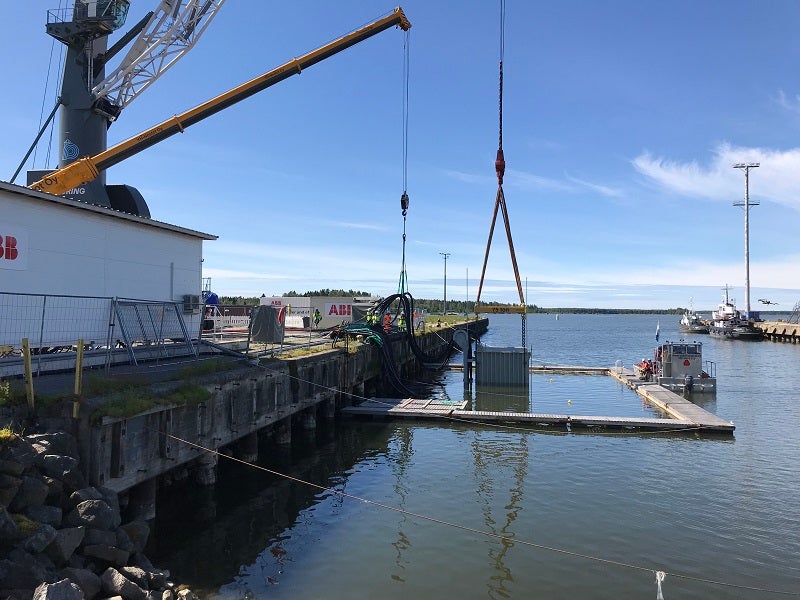
Swiss-Swedish technology multinational ABB has completed a 3,000-hour shallow water test proving that its subsea power distribution and conversion technology system for the offshore oil and gas industry is commercially viable.
The technology will allow energy companies to access a 100 MW power supply over distances up to 600km and to water depths of 3,000m using a single cable with little or no maintenance for up to 30 years.
The complete system incorporates a number of electronics and control systems that are proven to operate underwater, improving on previous iterations of the technology that could only use a step-down transformer and a transmission cable.
ABB vice president and global industry manager for oil and gas Martin Grady told Offshore Technology: “I think people are going further and deeper to reserves. [This technology meets] the needs of the other subsea equipment – compressors and boosting pumps for us to drive – so you’re looking at the development of a whole range of equipment, that makes that subsea prospect a reality.”
According to ABB, this technology could significantly reduce power consumption in oil and gas operations by powering pumps and compressors on the seabed, closer to reservoirs.
These energy savings would also reduce carbon emissions from offshore operations, which could be reduced further through future integrations with renewable energy sources. The shallow test project in Vaasa, Finland also used a system to recycle its own waste heat as power, reusing 85%-90% of its waste heat.
How well do you really know your competitors?
Access the most comprehensive Company Profiles on the market, powered by GlobalData. Save hours of research. Gain competitive edge.

Thank you!
Your download email will arrive shortly
Not ready to buy yet? Download a free sample
We are confident about the unique quality of our Company Profiles. However, we want you to make the most beneficial decision for your business, so we offer a free sample that you can download by submitting the below form
By GlobalDataBased on a specific field development case, the technology could offer offshore oil and gas companies capital expenditure savings of more than $500m by linking eight pumps or consumers through a single cable.
The system was researched, designed and developed as part of a $100m joint industry project (JIP) initiated in 2013 between ABB and Norwegian oil and gas company Equinor, with Total and Chevron as partners.
Describing the JIP, Grady told Offshore Technology: “I think the massive decline of the oil price in late 2014 was a seminal moment for the industry. My perception is that the industry become a lot more collaborative; I think this [project] is a particularly good example because [of] the level of trust and the level of openness.”
ABB Industrial Automation president Peter Terwiesch said: “This milestone marks an outstanding achievement and is the culmination point of an inspirational technology development achieved through tremendous dedication, expertise and perseverance.
“Moving the entire oil and gas production facility to the seabed is no longer a dream. Remotely operated, increasingly autonomous, subsea facilities powered by lower-carbon energy are more likely to become a reality as we transition towards a new energy future.”
ABB told Offshore Technology that the system is ready to be deployed as early as the first quarter of 2020, but will likely be subject to 12 months of further study to account for administrative or legal approval.



